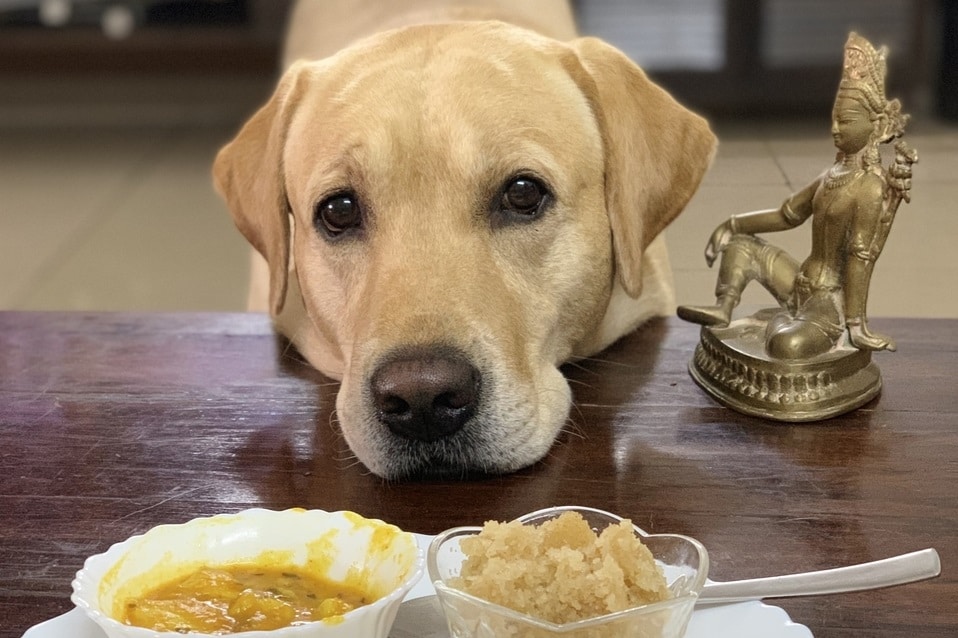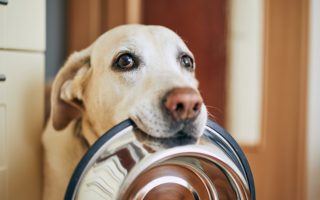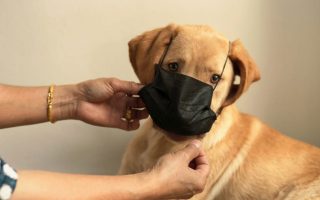Puppy food is the first thing which too is cared for. Your little labrador puppy has grown into an elegant teen. Wouldn’t it be nice to consider switching the teenage mutt to adult food?.
As compared to smaller breeds, big dogs like “Labrador Retriever” are slow-growing owing to the additional room they have to fill before they reach their adult size, so your puppy shouldn’t rush into adulthood.
It is no secret that the food we consume as a human has a profound effect on our health, fitness, lifespan, and overall wellbeing. The same goes for our labrador puppies.
It’s true what they say: what you eat determines your personality, and the same holds true for your labrador puppy. If you want to male lab pup to be a handsome boy and female lab pup to be an elegant lady as they grow older, then you must keep an eye on their age to age nutritional needs.
Nutritional needs of labradors vary according to their life stage, so getting nutrition right for a young puppy is of utmost concern.
A delicate balance has to maintain when it comes to getting adequate nutrients and preventing excesses from resulting in growth anomalies and disabilities. Let’s jump right into switching your labrador puppy over to adult dog food.
A Perfect Time To Switch To Adult Food For Your Labrador Puppy
At this stage of your pup’s development, breed-specific foods have greater levels of protein and calories that required for proper growth.
A labrador puppy can start eating adult dog food once they reach the age of 12-18 months, certain factors need to be considered.
Have you ever wondered why puppies and adults eat different food? Relax, I’m glad you asked.
You’ve surely thought about this before, so I’m assuming many of you already know the answer – for the rest of you who don’t, here it is.
Puppy food is specially designed to be nutrient-dense to meet their nutritional needs. On the other hand, adult dog food contains nutrients that suited to animals that have passed their growth phase.
As they grow, what they need to eat changes. From puppyhood through teenhood, and later on into a dog’s senior years, it is important to consult your pet’s veterinarian on what to feed your dog.
Here are some factors to consider:
Signs That Your Lab Puppy Is Ready For Adult Dog Food
To decide whether to switch puppy food, owners normally decide based on the size and age of their pups. I mean, they’re decent as a rough estimate, but they’re not 100% accurate.
A puppy’s energy level is equally important in determining their level of preparedness, in addition to their age and size.
Also, their age at which they transform to adult dog food may vary. For these reasons, your best contact regarding the changes should be your veterinarian.
Many owners of lab retrievers report that energetic dogs snack for a longer period of time compared to calm dogs. The lifespan of large dogs tends to be shorter than that of small dogs.
If your pooch falls into this category, his diet must contain more calories compared to what he expended. This is because adult dog food doesn’t contain as many nutrients as puppy food. It is only possible to feed him puppy food for a few days until he reaches adulthood.
You will notice the changes in your dog’s behavior as soon as he reaches maturity. Consequently, your dog’s behavior is another reason to switch to adult dog food. Some of the maturity signs include the following:
- Your pooch becomes less interested in eating puppy food.
- The pooch starts sleeping more than usual and shows signs of exhaustion.
- Your pooch frequently poos right after eating his special puppy food.
Labrador Puppy’s Size & Growth
Now that you’ve read the signs, you know exactly how your pup’s size and age will affect his nutritional requirements, and how he will start to loose his interest in the puppy food.
There are specific mineral balances needed for puppies of large breeds so that they develop their joints optimally and on schedule.
Your veterinarian should always consulted regarding your Labrador’s growth, and you should continue feeding him large-breed puppy food until he appears to be nearing the end of his growth plates.
Large Breed-Specific Foods
Large breed-specific foods exclusively developed for canines such as labrador retrievers. Strengthening nutrients such as “Glucosamine” and “MSM” are often found in these foods.
Due to the tendency of labrador retrievers to suffer from hip dysplasia, large-breed foods provide additional joint support thereby keeping them on their toes, as they grow.
A Labrador can become obese very easily, but large breeds have lower calorie intake, so that the apparently insatiable appetite of a dog satisfied when the meal is over and it does not feel the need to eat endlessly.
Food Choice Is The Key To A Dog’s Health
Making the switch to a new dog food can be a challenge at times. It’s common for people to have no idea which dog food they should switch to when they first start.
Choices can be quite overwhelming since there are so many options available. A great tip for choosing a dog food is to take the individual needs of the dog into account. Such as the age and other health related issues. And then choose the best one according to your needs.
- Due to their double coat, Labrador retrievers shed excessively. It is therefore necessary to choose a diet that allows them to shed less and maintain a shiny coat.
- When it comes to allergies in dogs, there are low-ingredient foods that might be suitable.
- Similarly, if your dog has joint problems, you should feed them a high-quality food that supports their joints.
Pick Food Brand Wisely
By feeding your labrador the most appropriate food, you can help your labrador enjoy a happy healthy life. That’s why you need to pick the food brand wisely that covers everything your labrador needs.
“Do you know that lab pooches are more likely to develop a permanently debilitating hip problem if their diet is too high in calcium in relation to their size”
It is unfortunate that there are only a few foods that satisfy these essential needs. But do not fret. We’ve compiled a list of 5 brands that provide lab puppies with calcium that’s right for them.
- Canidae All Life Stages Multi-Protein Formula
- Taste Of the Wild High Prairie
- Wellness Core Large Breed Adult
- Nutro Ultra Adult Dog Food
- Nom Nom Fresh
How To Switch
Once you have seen all of the signs and consulting with your vet, you are ready to switch. Learning how to switch labrador puppy food to senior food, actually is not as difficult as it sounds.
One thing to keep in mind is that the process is multi-step, making it a time-consuming process. Plus, reversing the diet immediately might upset your dog’s stomach with some unpleasant symptoms like vomiting and diarrhea.
Your dog will feel just as uncomfortable as you do. Thus, change gradually over a period of one week. The following steps explain how to switch lab puppy to adult dog food.
DAY 1 & 2
During the first two days following the switch, do not alter your dog’s feeding regimen. Rather, you should substitute the old food for the new to achieve a balance between them. Ideally, you should give your dog about 75 percent old food and 25 percent new dog food.
Thus, 75% old food + 25% new food.
DAY 3 & 4
You will add a little more new food to your dog’s diet on days three and four. For now, you should feed him the same amount of new and old food.
Thus, 50% new food + 50% old food.
DAY 5 & 6
On day 5 and 6, your lab will begin consuming a greater proportion of his “new” food than his “old”.
Thus, 25% old food + 75% new food.
DAY 7
You will find that your labrador is eating 100% of his new food after 7 days.
FAQs
At what age should labrador puppies be switched to adult dog food?
The majority of manufacturers recommend feeding your labrador puppy food up to 12 months of age and then switching to adult food.
What are some signs that my puppy is ready to be fed adult food?
According to general guidelines, young dogs should be weaned to adult food around the 75th to 85th percentile of their adult size, around the time when naturally their growth rate slows down.
At what age do labradors become adults?
Labradors mature at a rather fast pace, achieving full adult height between 6 and 12 months, although they may still grow until age two.
How do puppy foods differ from adult dog foods?
Puppy food and adult dog food differ greatly in their nutritional composition. Puppy food targets both growth and reproduction while adult dog foods target their maintenance nutritional needs.
Does it matter if the puppy is spayed or neutered?
Most commonly, the energy level of your pooch will drop right after surgery. In any case, veterinarians are recommended, as adjustments to the dog’s food may be needed in order to prevent the dog from gaining weight.







